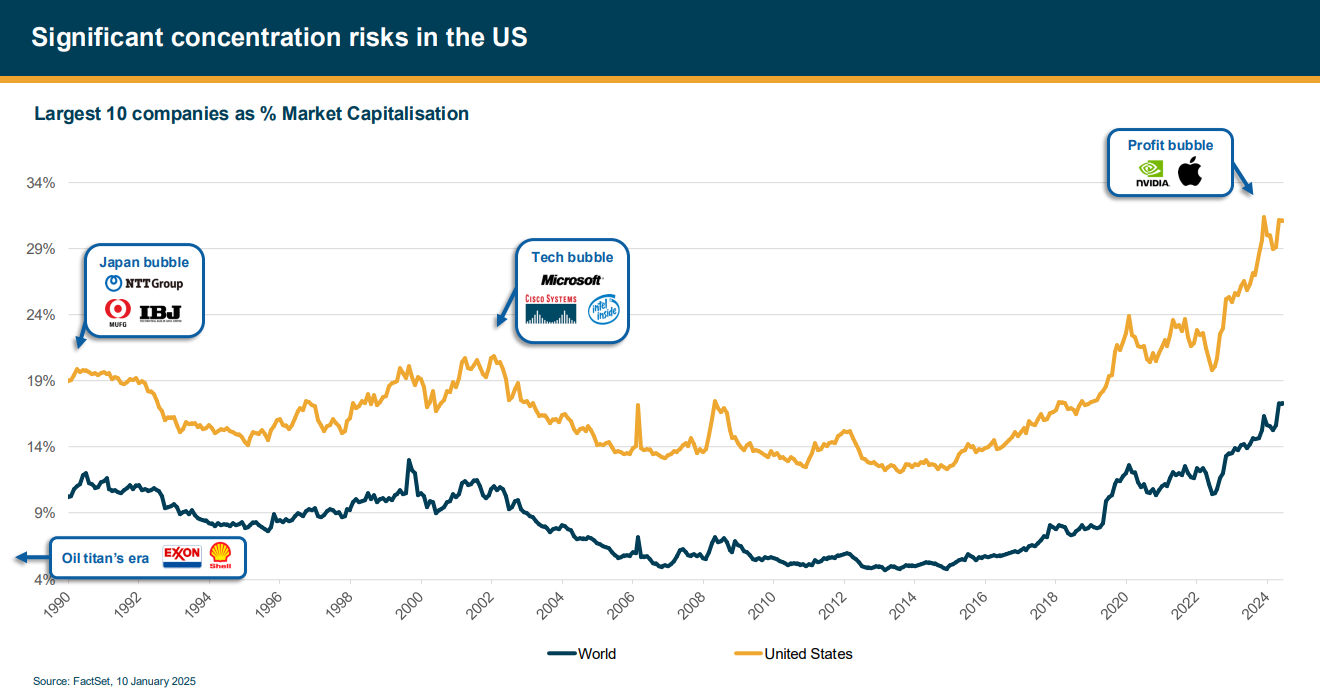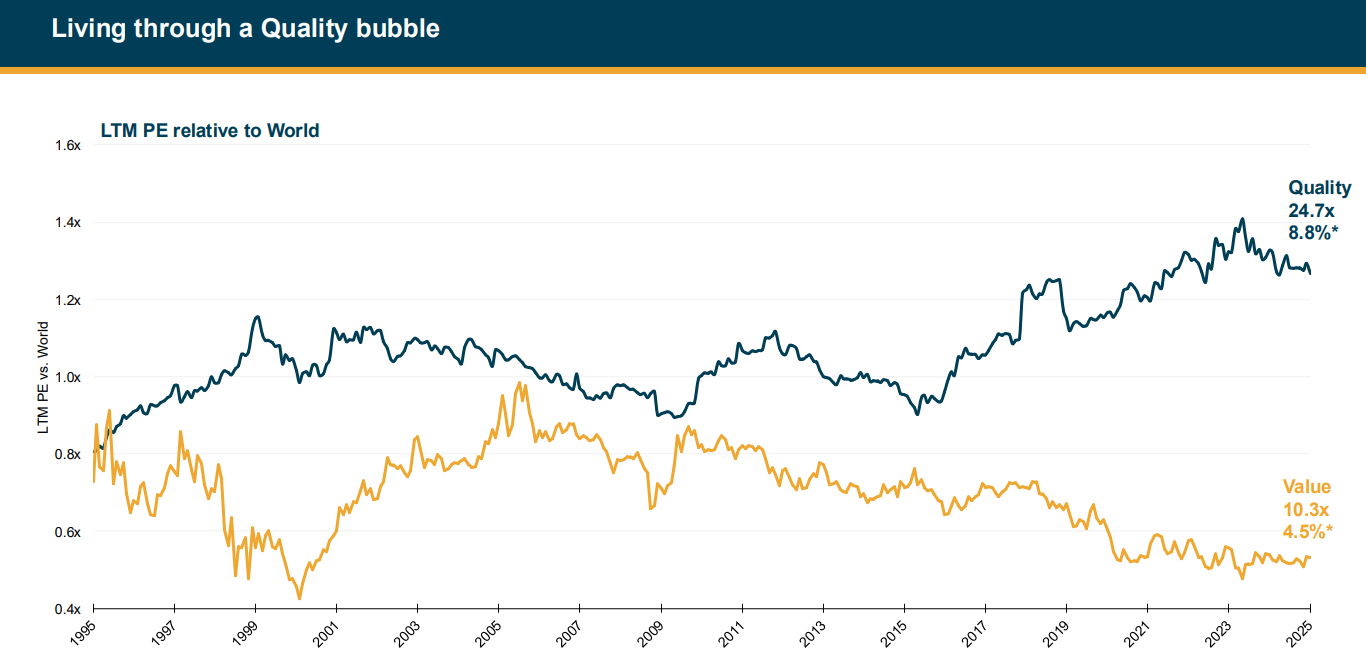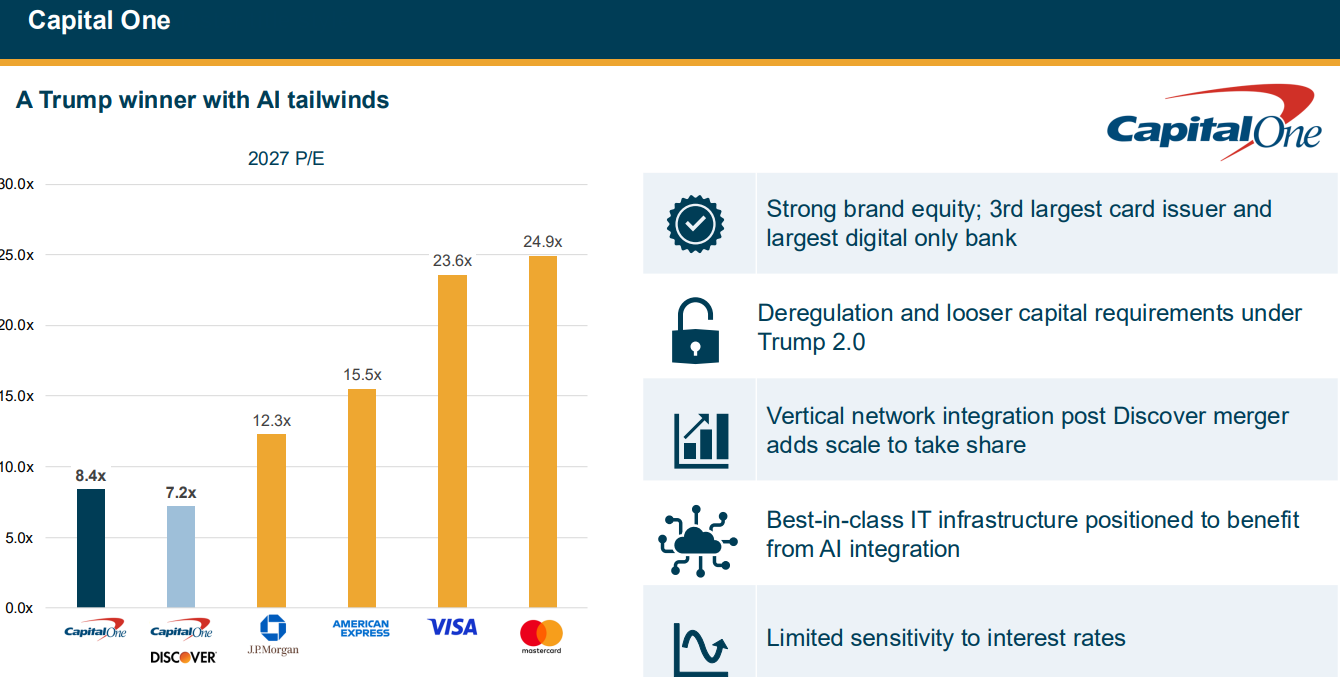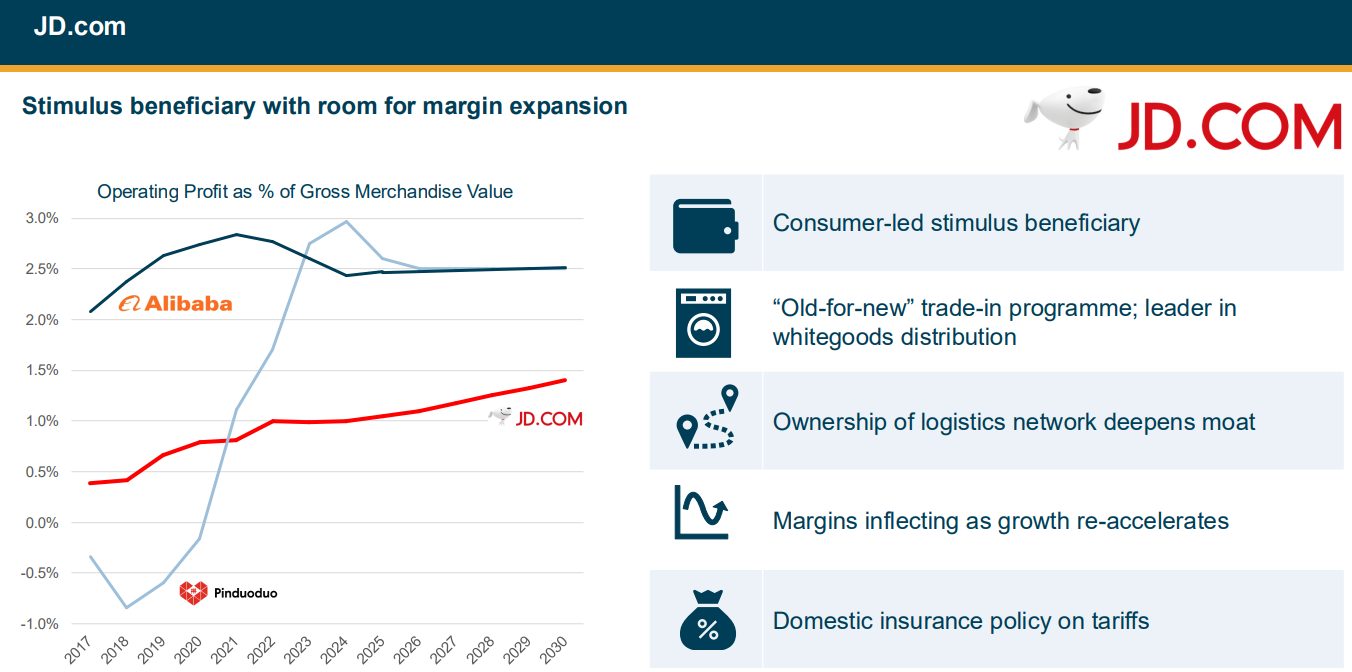The AI hype trap: Why Antipodes’ Jacob Mitchell warns investors to stay grounded
.jpg)
The artificial intelligence (AI) revolution has captured the imagination of investors, with semiconductor stocks and cloud providers rallying to record highs.
But Jacob Mitchell, Chief Investment Officer at Antipodes Partners, believes investors should proceed with caution.
While he acknowledges AI’s long-term potential, he argues markets are dangerously concentrated, with investors overpaying for uncertain future earnings in the AI boom. Instead, Mitchell is focusing on overlooked quality businesses that are trading at compelling valuations.
“Any new technology cycle tends to start with a focus on the enablers - the companies selling the picks and shovels, like Nvidia today. But as the technology matures, the market shifts to identifying businesses that can use AI to create sustainable advantages.”
At the 2025 Pinnacle Insights Series, Mitchell outlined how his team is navigating an AI-dominated market, why financials and consumer-facing stocks are better positioned for today’s environment, and why valuation discipline remains as critical as ever.
Why AI euphoria could leave investors exposed
The AI boom is creating dangerous levels of market concentration, particularly in the US., where the Magnificent Seven stocks now represent an outsized portion of major equity indices, as shown in the graph below.

Investors, especially those flooding into index funds, are fueling a “US quality tech bubble,” echoing past manias like the dot-com bust of 2000-02, where value stocks held up far better after the crash.

"That [quality] multiple is close to an all-time high in both an absolute and relative sense and its much higher than the last bubble in 2000. Value, on the other hand, has rarely been cheaper, and lets be clear, value doesn’t mean rubbish."
As such, he believes investors should take a broader global approach and consider opportunities elsewhere in US markets, as well as in Europe and China, where policy support and valuation discounts create a more favourable risk-reward balance.
Mitchell stresses that he doesn't think AI itself is a fad; it will certainly transform industries - but the inflated valuations are becoming problematic. Instead, Antipodes is being selective by applying a "pragmatic value approach" - seeking companies that will benefit from AI adoption while maintaining strong fundamentals and reasonable valuations.
"Value as a factor has struggled, but pragmatic value - investing in mispriced, high-quality businesses - has outperformed conventional value strategies," he says.
Key sector opportunities: Who really wins from AI?
As AI stocks reach extreme valuations while traditional value strategies struggle, Mitchell is focusing on selective opportunities in sectors poised to benefit from AI adoption and other factors, including potential fiscal spending and policy shifts - without the sky-high price tags:
- Industrials: Automation and machine learning are transforming supply chains, logistics, and manufacturing, making industrial companies some of the biggest beneficiaries of AI-driven efficiency gains.
- Financials: Banks and financial institutions with strong capital positions stand to gain from a ‘higher-for-longer’ interest rate environment. At the same time, AI-driven efficiencies in risk management, fraud detection, and customer service are creating new competitive advantages.
- China’s consumer recovery: Despite structural headwinds, Mitchell sees opportunity in consumer-driven sectors positioned to benefit from government stimulus efforts.
5 stock ideas ticking the pragmatic value box
Mitchell believes in identifying companies with strong fundamentals and solid growth potential that are temporarily mispriced due to shifting market narratives or cyclical dislocations—a strategy he refers to as 'pragmatic value.' His key stock picks include:
Capital One (NYSE: COF): Trading at just 7x earnings, Capital One is a popular North American lender that's achieving cut-through against its larger US competitors with its own line of loans and credit card products. The stock could also benefit from Trump's commitment to deregulating financial services.
"Capital One made a very hard decision six years ago to rebuild their entire tech stack in Amazon AWS in the cloud. That gives them a unique advantage today against most other banks.”

JD.com (NASDAQ: JD ): Trading at 8x earnings, the Chinese e-commerce giant offers compelling value relative to its growth potential, especially compared to US alternatives like Amazon. The company would also be a key beneficiary of stimulus measures designed to boost China's domestic consumption.
“JD has concentrated efforts in e-commerce in white goods and electronics, where it holds a 40% market share. That represents half of its business.”

Sanofi (EPA: SAN): A defensive pharmaceutical name, trading at 11x earnings, with a strong pipeline and minimal exposure to US drug pricing risks.
“Sanofi trades on a PE of roughly 11 times, has very little American drug pricing regulatory risk, and has exposure to loss of exclusivity.”
TotalEnergies (EPA: TTE): The French multi-national energy giant is trading at a discount to US peers despite being a better-run business.
“TotalEnergies is a quality cyclical play trading on half the multiple of Exxon, despite being a higher-quality energy company, simply because it’s listed in Europe.”
Alphabet (NASDAQ: GOOGL): Amid the AI bubble, Google's parent Alphabet stands out given its trading on ~20x earnings, relatively cheaper than its peers, due to the uncertainty surrounding its core search business as people turn to AI tools to ask questions.
"Whether AI is good or bad for Alphabet is being deeply debated but I think that's the opportunity to buy a very resilient, higher growth business on a on a on a multiple that doesn't recognise that structural tailwind that they have across all of their businesses."
Final thoughts
While AI is undeniably a powerful technological shift, Mitchell believes investors need to remain disciplined in their approach. He warns against paying excessive premiums because, at the end of the day, everything has a price, no matter how good the story is.
“Markets are highly concentrated today, but history shows that this doesn’t last forever. We focus on owning high-quality businesses at the right price because valuation always matters in the long run.”

3 topics
3 stocks mentioned
1 fund mentioned
1 contributor mentioned

